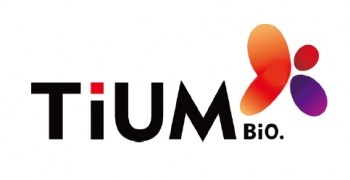기업
Tium Bio, Series B has attracted investment of 23.5 billion won… “R&D is in full swing”
바이오스펙테이터 Sungmin Kim 기자
Tium Bio successfully completed a spin-off of SK Chemical at the end of 2016, and received a total of 35.5 billion KRW funding from 9 institutions within only a year and a half... “R&D, including endo

Tium Bio, a company specialized in the treatment of rare diseases, has succeeded in securing large-scale funding for research and development (R&D). Tium Bio has announced last month 24th that with series B, it has received 23.5 billion KRW. Tium Bio has already been funded with KRW 12 billion in series A from Korea Investment Partners and the KTB Network within only half a year since its establishment last year, and has succeeded in attracting follow-up investment in just one year. The total of 35.5 billion KRW secured in a year and a half is the highest ever in the history of attracting investment in the bio industry of Korea.
Korea Investment Partners, KTB Network, an original investor, and newly joined investors, who include Korea Development Bank, IMM Investment, DSC Investment, Premier Partners, Stick Investment, Hyundai Investment Partners, and Kiwoom Securities, participated in series B.
Hu-Taek Kim, CEO of Tium Bio announced, “The company is expecting to accelerate the clinical trials in Europe for the candidate endometriosis drug candidate (NCE403), the most advanced drug in the development stage, and to research and develop new drugs for rare diseases.”
Despite still being in the early days of its establishment, Tium Bio has made considerable progress in pipeline development. In March this year, NCE403 (TU2670), a candidate for the treatment of endometriosis leading to the first pipeline, entered clinical phase Ib in Germany. NCE403 is a GnRH antagonist, and has been shown to have equal or better efficacy at lower doses compared to the competitive elaborate ‘elagolix’ of Abbvie, when evaluating hormone levels following drug administration in clinical phase Ia.
Next, there is ‘NCE401’, an oral medicine that targets transforming growth factor beta (TGF-beta). TGF-beta inhibitors are currently attracting a great deal of attention, because they can solve the PD-1 / L1 resistance problem in the field of immune-cancer therapy.
In the long-term, Tium Bio is finding new projects that focus on rare diseases, including the next-generation hemophilia treatment using platform technology that has increased half-life. The most prominent study of hemophilia is NBP604, which improves the half-life of exogenous blood coagulation factors. In addition, they are studying NBP611, which increases the half-life of hemophilia B treatment (factor VI) as a follow-on pipeline.
TIUM BIO is aiming for an IPO next year based on the tangible achievements of this year. It has a business model that develops and transfers technology to the stage of develop clinical phase II of Tium Bio’s new drug candidates.
On the other hand, Tium Bio is a company founded in December, 2016 by SK Chemicals’ innovative R&D center in the field of life sciences spin-offs, researching and developing candidate substances, such as immune-cancer drugs and hemophilia treatment. Kim has developed ‘AFSTYLA’, a next-generation hemophilia A treatment approved by the US Food and Drug Administration (FDA) and the European Medicines Agency (EMA) in 2016 at global SK Chemicals.

















